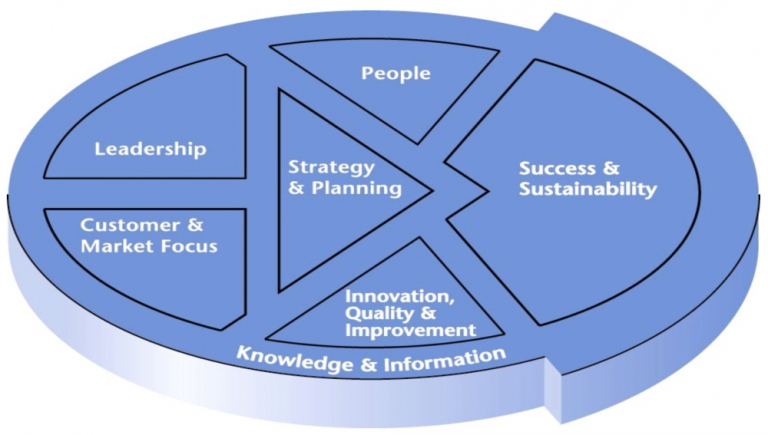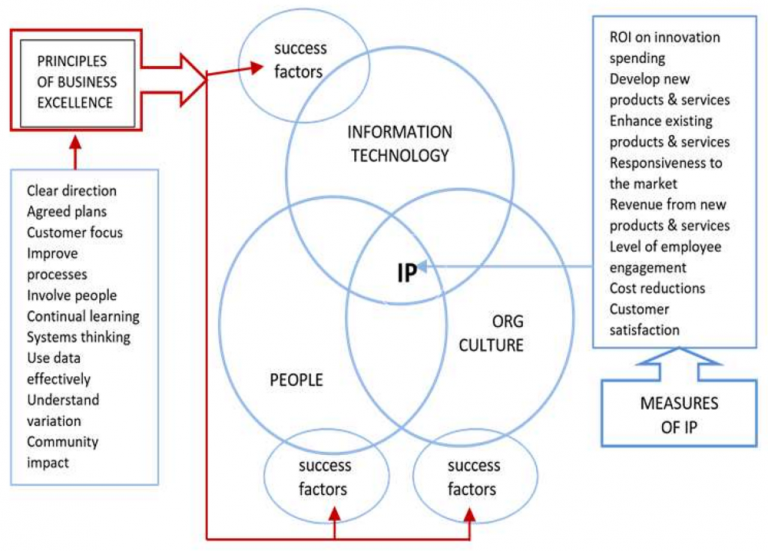
Can a business excellence framework shape knowledge management and contribute to innovation performance?
Business excellence frameworks such as the EFQM Excellence Model, Baldrige Excellence Framework, Australian Business Excellence Framework, and Singapore Business Excellence Framework are designed to assist organisations to improve their performance and become more competitive.
Innovation is now a mainstay of organisational competitiveness, and innovation is critically dependent on knowledge1. Given this, a recent conference paper2 by two University of Melbourne researchers sets out to explore the ways in which a business excellence framework can inform knowledge management practices that lead to sustained innovation performance.
The methodology consisted of a literature review, the development of a theoretical model of knowledge management (KM) and business excellence using the Australian Business Excellence Framework (ABEF), and then a qualitative study.

Knowledge and information form a ring circling the other six performance categories in the ABEF, in recognition of their pivotal role in business excellence (Figure 1). The theoretical model links business excellence principles with KM practices, and denotes how KM success factors that are informed by principles of business excellence can lead to innovation performance (Figure 2).

The qualitative research involved six case studies of Australian service sector organisations that had won an
Australian Business Excellence Award. They were a revenue services organisation, an ambulance services organisation, an environmental monitoring organisation, a real estate company, and a regional city council. Analysis of the case study data revealed the manner in which the ABEF informed knowledge management practices and contributed to innovation.
Findings
The six case study organisations are heavily committed to KM, and respondents from all six strongly agreed that KM provided strong support for business excellence activities and contributed to innovation. A number of critical success factors linked closely to the principles of the ABEF were identified, including:
- linking KM to business strategy
- linking technology to people and processes
- gaining the support of senior management
- focusing on the needs of clients and/or customers
- implementing two-way and open communication processes
- sharing knowledge across the organization
- rewarding knowledge work
- planning processes that crosscut all business units and/or divisions
- creating a common language of KM.
Other findings of note include:
- For most of the organisations, the definition and scope of innovation was limited to incremental rather than radical or large scale innovation.
- In all six cases, a strong emphasis on innovation based within the organisational culture as opposed to innovation based within value-chains was evident.
- The public sector organisations in particular focus strongly on continuous improvement in an environment where providing high quality service and delivering greater value to stakeholders drives KM and innovation.
- In contrast, the two private sector organizations view innovation as a source of direct competitive advantage through the discovery of new techniques, the development of new products and services as well as the improvement of existing services through continuous improvement.
The researchers acknowledge that their study is preliminary in nature, and that it would be useful to expand the number of cases studies and to examine other business excellence frameworks. For example, the Baldrige Excellence Framework which also has a strong KM focus.
References:
- Du Plessis, M. (2007). The role of knowledge management in innovation. Journal of knowledge management, 11(4), 20-29. ↩
- Gloet, M., & Samson, D. (2017, January). Linking Knowledge Management, Business Excellence and Innovation Performance. In Proceedings of the 50th Hawaii International Conference on System Sciences. ↩
Also published on Medium.






